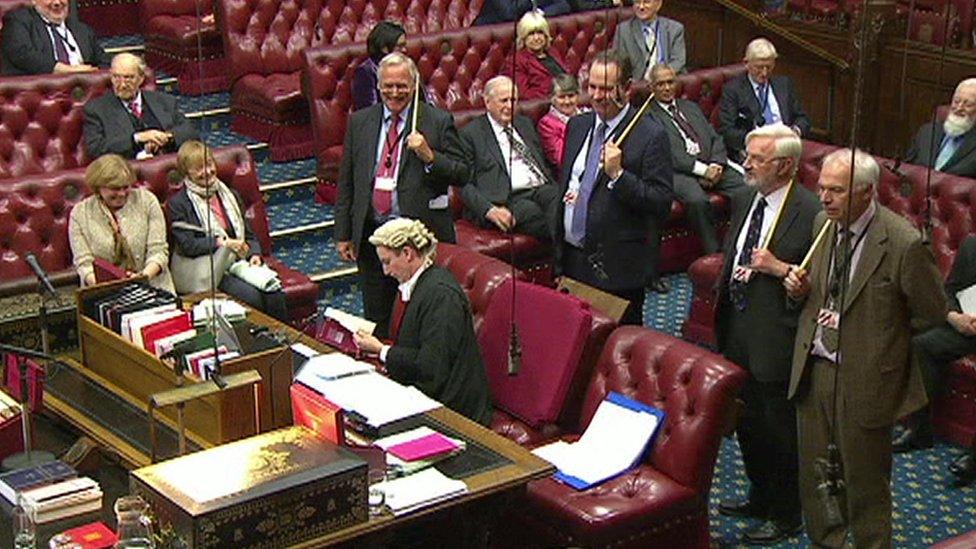'Super-narrow squeak' over Welsh powers Bill
- Published
- comments

A clerk consults standing orders as peers await the result of the Wales Bill vote.
They don't do penalty shoot-outs in the House of Lords. Instead, they have standing order 56, external to decide drawn matches.
Last night's tied vote on the Wales Bill - on a Labour amendment to devolve industrial relations in devolved public services - had clerks reaching for the rulebook.
Peers were told: "They have voted contents 222, not contents 222. There being an equality of votes in accordance with standing order 56 which provides that no proposal to amend a Bill in the form in which it is before the House shall be agreed to unless there is a majority in favour of such an amendment. It's clear the amendment is disagreed to."
'Squeak'
So the government narrowly avoided a defeat some MPs believed could have cost it the Bill. Glyn Davies, who is parliamentary private secretary to Welsh Secretary Alun Cairns, wrote on Facebook: "Now that was a super-narrow squeak. Last day of debate on Wales Bill in the Lords today with one potential problematic vote on devolution of trade union law. Labour wanted it devolved and we didn't.
"Because of time pressure, could have sunk the whole bill. Vote was tied 222/222. Convention means amendment fails. Wow, that was close. Should make it to Royal Assent now. Big score for Sec. of State Cairns."
Alun Cairns admitted there was a sigh of relief in the Wales Office but said jokingly that the vote was a result of "pin point control".
As one of his team put it: "A win is a win".
'Scepticism'
But before it can make it to Royal Assent, AMs will vote next Tuesday on whether to approve the new law. Finance Secretary Mark Drakeford, who has spent the last few months negotiating a "fiscal framework" deal with the UK government, says it is not a foregone conclusion that AMs will give their consent.
There is still scepticism in some quarters that the Bill doesn't go far enough and in some areas rolls back powers. But it offers the assembly the chance to call itself a parliament and create more AMs. It also doubles the Welsh Government's borrowing powers (from £500m to £1bn) and allows it to vary income tax rates.
Labour peers were "gutted" by Monday night's close vote but will ministers really recommend that AMs reject the entire package?